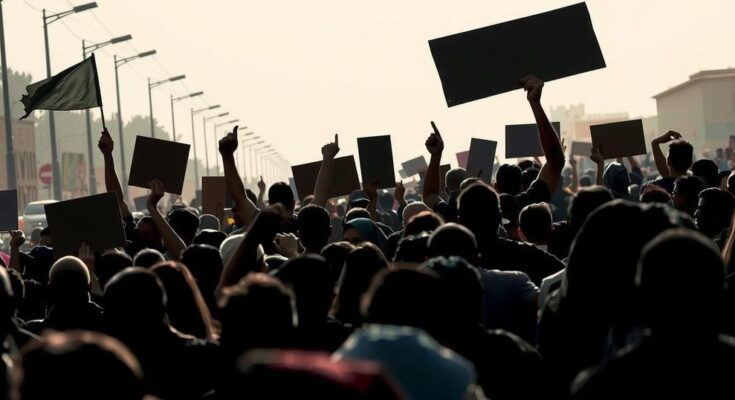Recent clashes in Bolivia between Evo Morales’ supporters and counter-protesters resulted in injuries, reflecting a deep political divide as former President Morales challenges current President Luis Arce. The conflict stems from a political rivalry that arose after Morales’s resignation in 2019, with Arce accused of poor governance amidst economic difficulties. Morales intends to run for presidency despite legal challenges ahead of the 2025 elections.
In La Paz, Bolivia, tensions escalated as at least a dozen individuals sustained injuries following confrontations between anti-government protesters and counter demonstrators amidst an ongoing political rivalry between President Luis Arce and former President Evo Morales. On Tuesday, Morales rallied approximately 10,000 supporters to participate in a “March to save Bolivia” from Caracollo to the capital. Initially, the march proceeded without incident until it encountered a group of government supporters near Panduro, who were equipped with tear gas bombs, stones, and firecrackers, blocking a highway. Counter-protesters yelled, “Evo, you traitor, your time has passed,” while Morales’s supporters retaliated with slingshots and rocks, asserting, “Evo, Bolivia wants you back!” These clashes underscore the political turmoil between Arce and Morales as the country approaches the 2025 elections. Both politicians were initially aligned within the same socialist movement; however, their relationship deteriorated in 2021 over disputes regarding internal party leadership. Many protesters attribute the country’s economic challenges and a pressing fuel shortage to Arce’s administration, while Arce has accused Morales of inciting a coup by instigating protests against him. Eduardo Del Castillo, a prominent official in Arce’s government, labeled the march as a “death march,” alleging that it aimed to disrupt democracy and jeopardize the lives of Bolivians. Morales, on the other hand, asserted that the government deployed plainclothes police to incite violence at the protest—an allegation that Arce’s administration strongly denied. Despite a 2023 court ruling that Arce argues disqualifies him, Morales has expressed intentions to run for president in the upcoming election.
The political landscape in Bolivia has been significantly influenced by the rivalry between Luis Arce and Evo Morales, both of whom were part of the same socialist political movement. Morales served as president from 2009 until 2019, while Arce became president in 2020 following a tumultuous period marked by Morales’ resignation. The split between the two arose primarily due to disagreements over party leadership and strategy. As Bolivia navigates persistent economic challenges, including a fuel crisis, public discontent has been directed towards Arce, further fueling the political conflict.
The recent clashes in Bolivia represent an alarming escalation in the ongoing power struggle between President Luis Arce and former President Evo Morales. With injuries reported and accusations exchanged, the situation reveals deep-seated tensions within the country’s political sphere. As both leaders prepare for the 2025 elections, the events of this week may shape the future of Bolivian politics significantly.
Original Source: timesofoman.com




